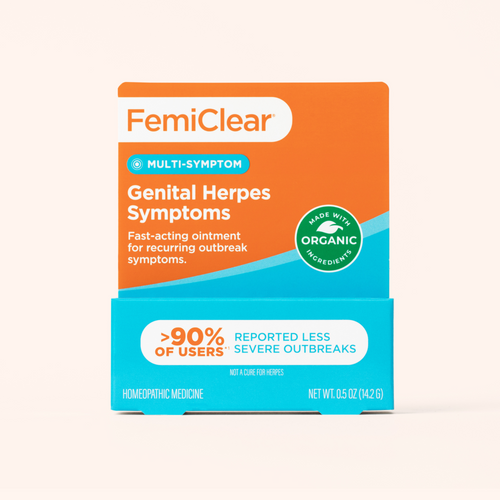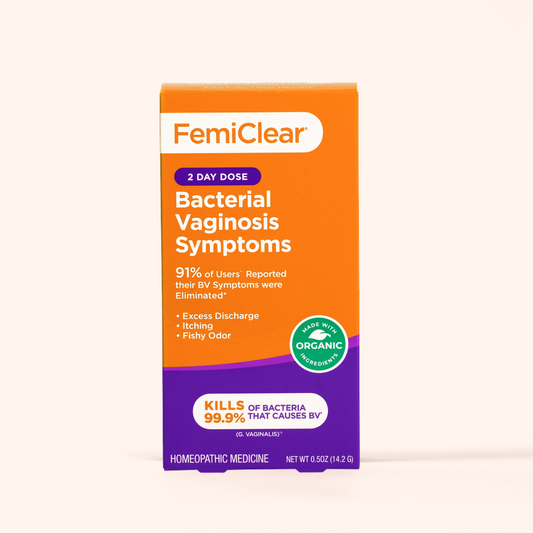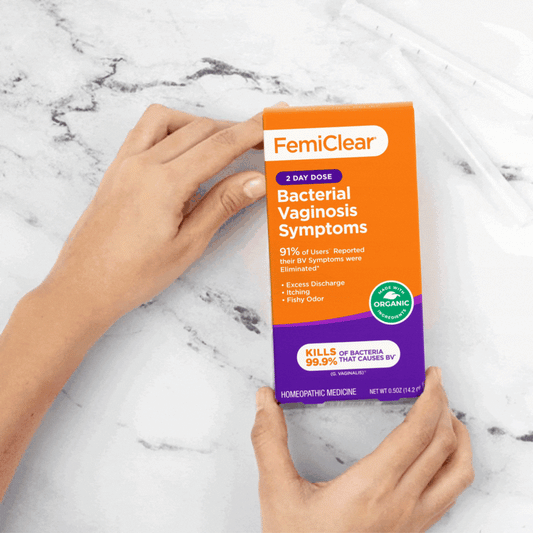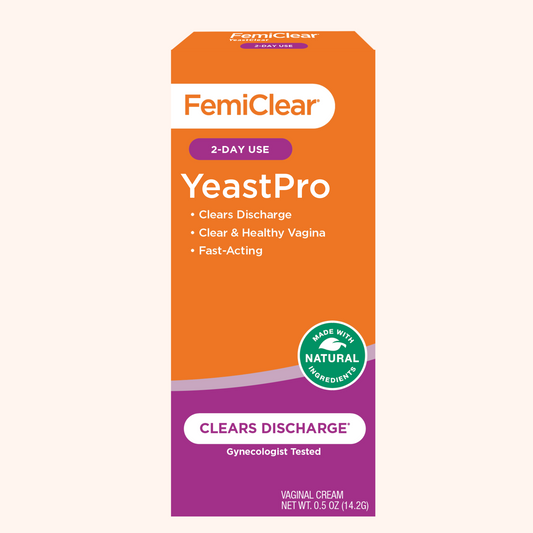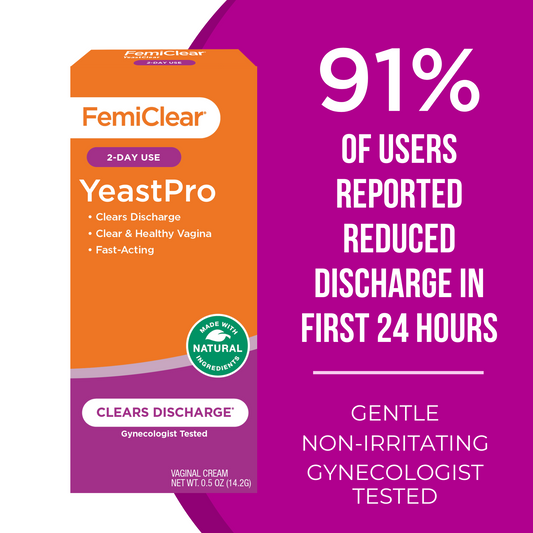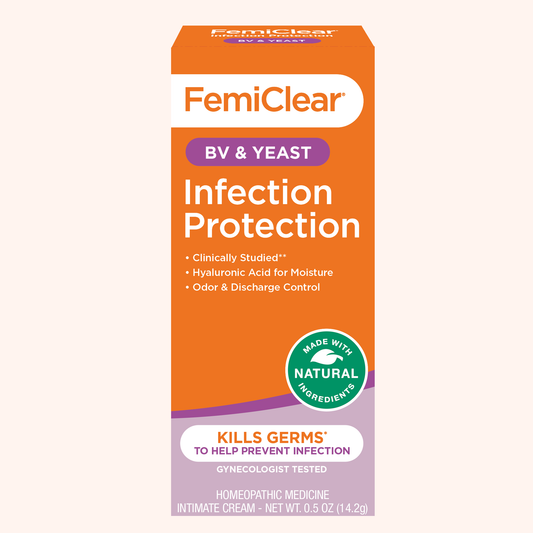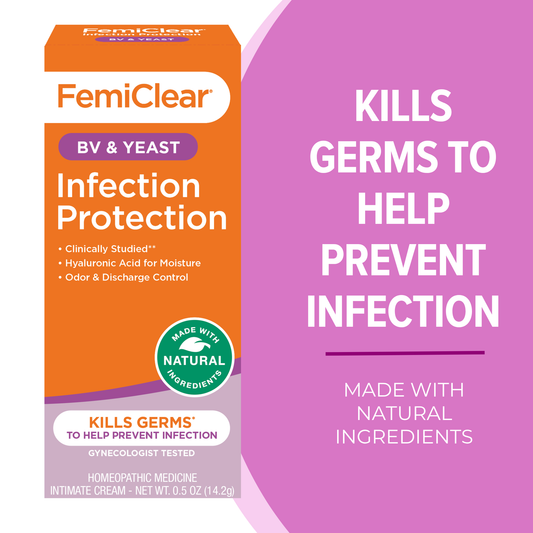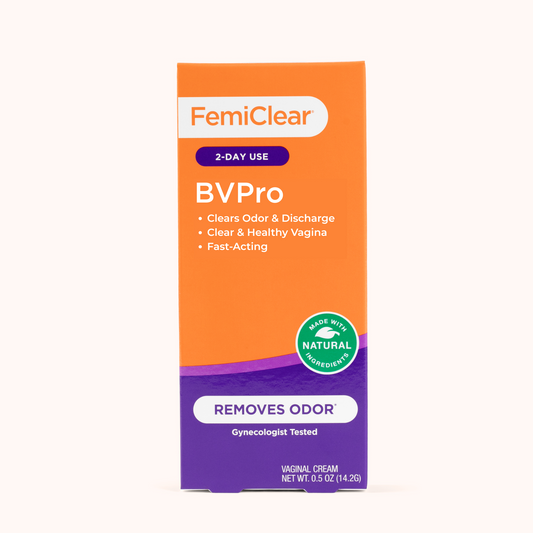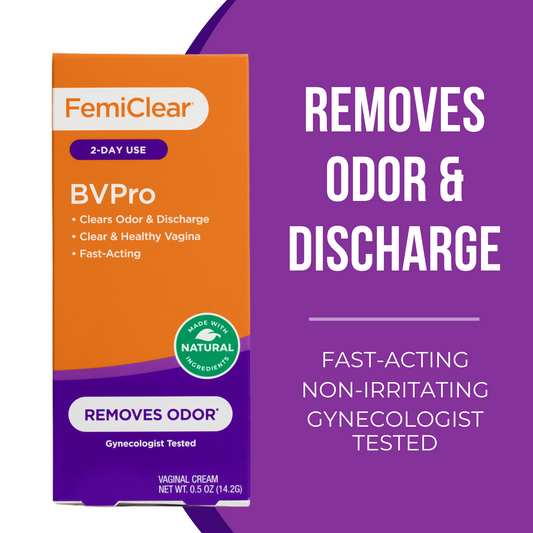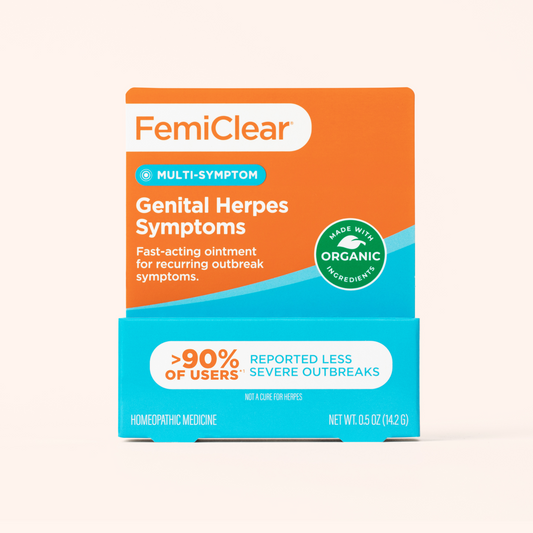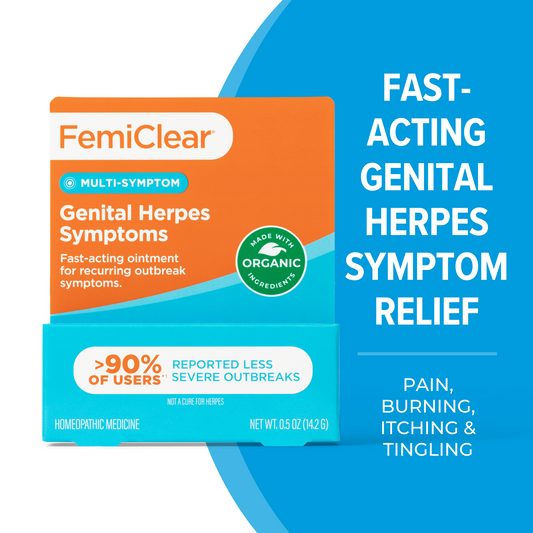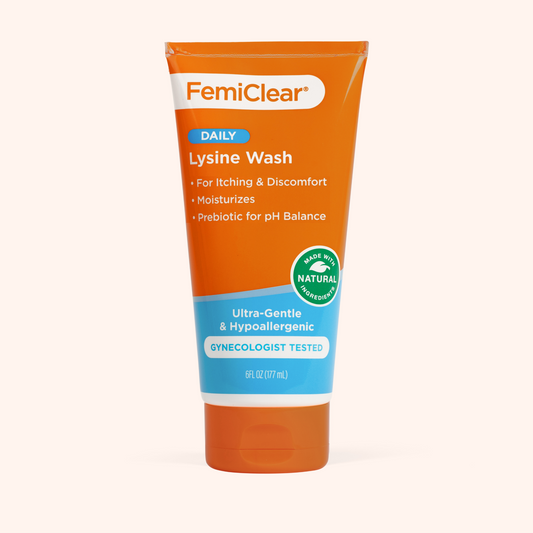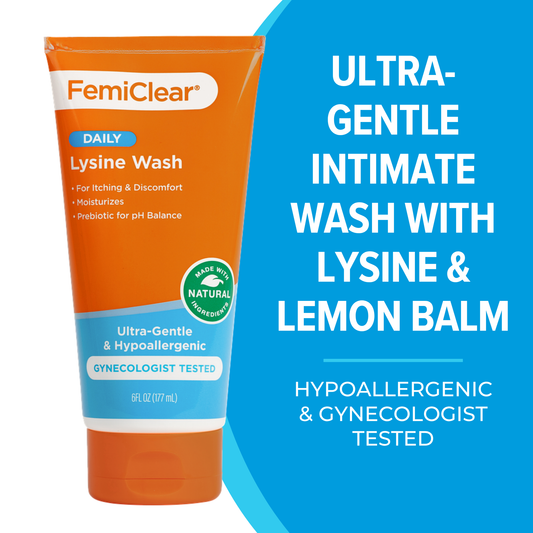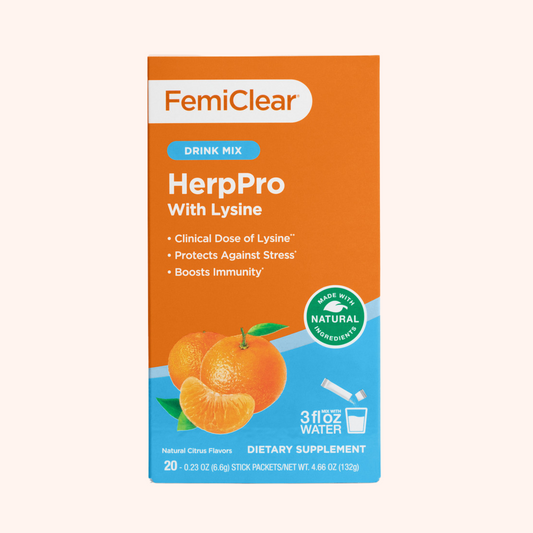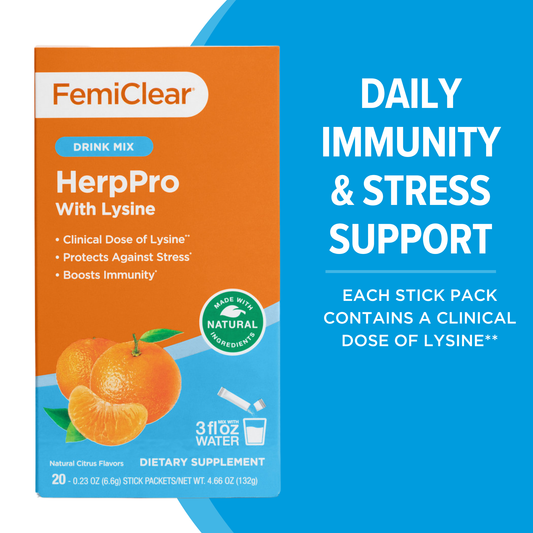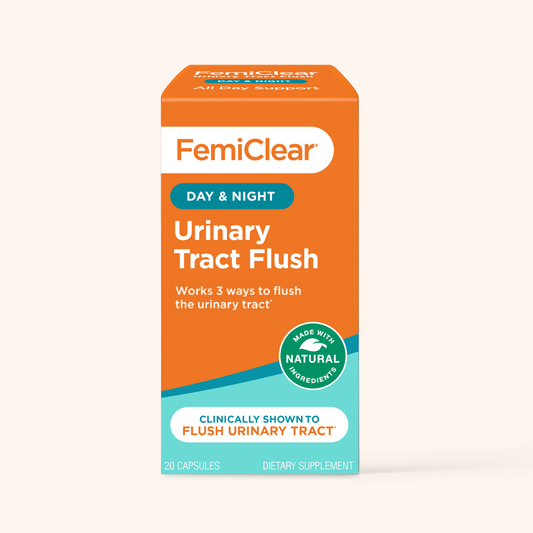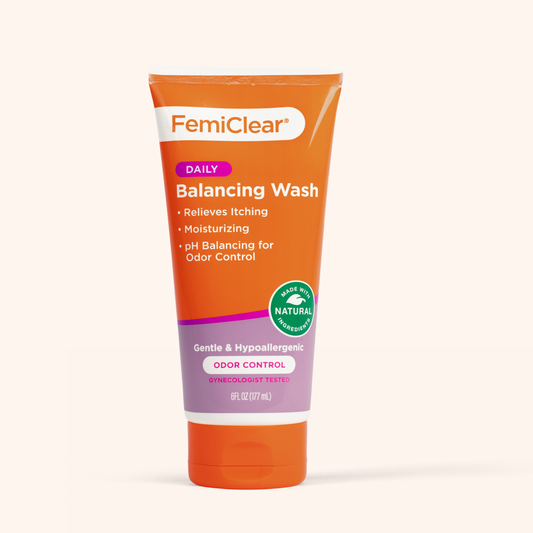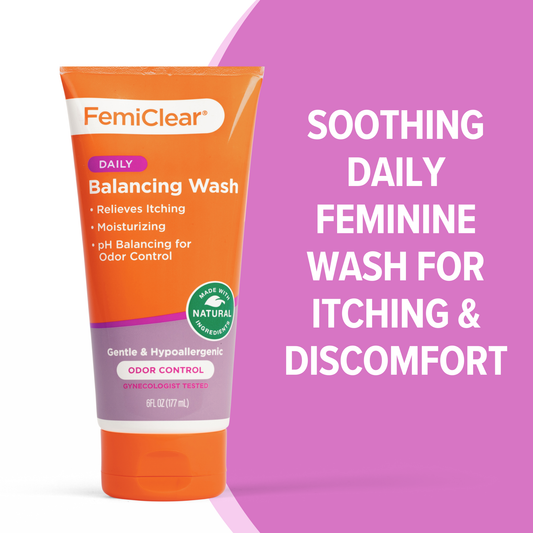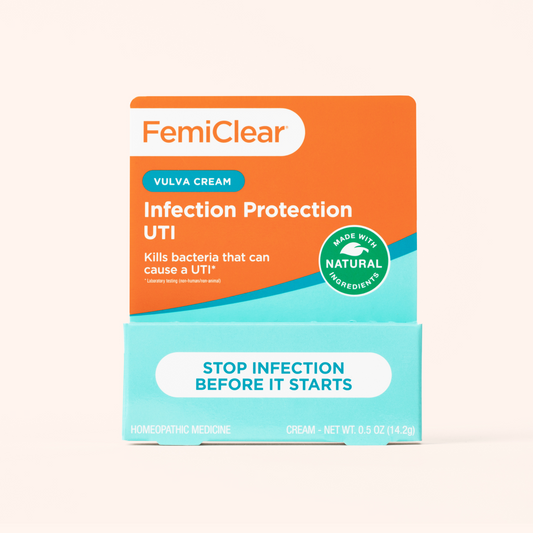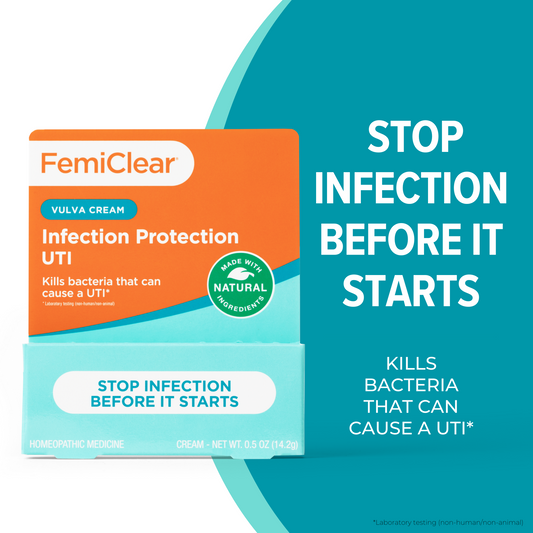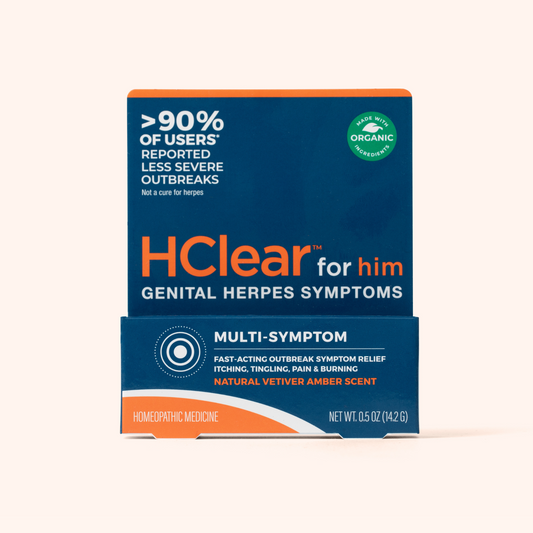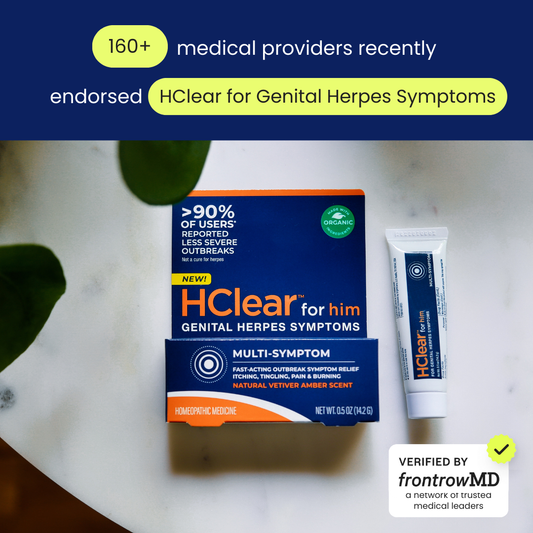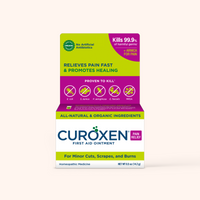Table of Contents
Everything You Need to Know About Herpes in Men
Written by Julia Pelly, MPH Nov 18, 2022

What is Herpes?
Genital herpes is a sexually transmitted infection that is caused by the herpes simplex virus (HSV). Herpes is common and, while it can cause painful or uncomfortable symptoms, it does not typically cause any serious health problems.
According to the World Health Organization, there are two types of the herpes simplex virus; HSV1 and HSV2. HSV-1 is most often transmitted by oral-to-oral contact and is responsible for cold sores and other oral symptoms. HSV-1 is very common, with about ⅔ of people under 50 carrying the virus.
HSV-2 spreads through skin-to-skin genital contact and causes genital herpes. HSV-2 is also common, though most people who have genital herpes are not aware of it. Though less common, HSV-1 can also cause genital herpes in the case of oral-to-genital contact.
There is no cure for herpes in men or women, but you can take medication to reduce and shorten outbreaks and lower your chance of spreading herpes to someone else. You can also use over the counter remedies to help ease uncomfortable symptoms and feel better faster if you do experience an outbreak.
How Common is Genital Herpes in Men?
While most people remember learning about herpes in their high school sex education class, many don’t know just how common it is. According to the Centers for Disease Control (CDC), in the United States:
- 18.6 million people are currently living with herpes.
- 572,000 people are newly diagnosed with herpes each year
- 12.1% of people have genital herpes
- While herpes is more common in women than in men, 1 in 8 men are currently living with herpes
- More than 85% of people with herpes are unaware they have it
Herpes in Men Vs. Herpes in Women
The herpes simplex virus is responsible for genital herpes in both men and women. It can be spread from men to men, from women to men, from men to women, and from women to women. Anyone who has herpes can transmit it to another person and anyone who has skin-to-skin sexual contact with someone who has herpes may become infected.
Herpes is not worse in men or women and most symptoms are generally the same, though they may appear slightly different due to the difference in anatomy between men and women. Women do report more pain with urination during a herpes outbreak than men who don’t tend to experience this issue.
Symptoms of Herpes in Men
You may wonder, what does male genital herpes look like? The most common symptom of herpes in men (and usually the one people recognize as an issue) is a group of tingly, itchy, painful, or inflamed blisters on or around the penis, scrotum, anus, buttock, or inner thighs.
Herpes blisters appear as yellow, white, or red, fluid-filled bumps. They usually look different than razor burn, pimples, or ingrown hairs. There may be a few or many.
The blisters usually break within a few days and then turn into sores that scab, itch, and may remain uncomfortable until they heal.
If you have blisters or painful spots in your genital area, it’s a good idea to see a doctor so that they can help determine what is going on.
During your first outbreak you might also have flu-like symptoms including:
- Fever
- Swollen glands
- Muscle aches
- Headache
- Fatigue
It’s uncommon to have flu-like symptoms with subsequent outbreaks and, in general, the first outbreak has the most severe symptoms.
Male Genital Herpes Outbreak Timeline: From First Outbreak to Managed Condition
If you’ve recently been diagnosed with herpes, you might wonder what sort of experience you can expect in the next several years. We walk you through what you can potentially expect in this quick herpes outbreak timeline.

-
Before the Outbreak
Before your first outbreak occurs, you will have been exposed to the herpes simplex virus and contract the infections. The average incubation time from exposure to outbreak is around 4 days, though an outbreak can begin within as few as two days or as many as several weeks.
-
The First Outbreak
The first outbreak is generally the most painful and severe. You might notice flu-like symptoms, painful blisters on or around your genitals, and a fever. You may also only notice what appears to be a more minor rash of slightly uncomfortable blisters. Some people who are exposed to herpes and contract the infection never show any symptoms at all or show symptoms that are so minor they don’t notice them or suspect that they are a problem. The first outbreak can last from 2-4 weeks and is often when people are diagnosed with herpes.
-
Diagnosis
Getting diagnosed with herpes can feel scary or overwhelming. You might be diagnosed by your primary care doctor, an urgent care doctor, or a doctor at a sexual health clinic. Your doctor will share information about herpes and provide information on taking antiviral medication and using over-the-counter options for symptom relief. The most accurate way to test for herpes is to culture a sample from a blister. While there is a blood test for herpes it is not always accurate and not included in a standard STI panel so, if you notice bumps, blisters, or a rash, it’s important to see a doctor.
-
The First Year
It is common to have recurring outbreaks during the first year after you contract herpes. Outbreaks will generally become less severe, shorter in duration, and less painful each time. You'll also begin to learn which over-the-counter products work best to help you find symptom relief and to notice when you think an outbreak may be coming. You might also notice triggers like stress and certain foods that make an outbreak more likely. During this time, it is common to feel frustrated, annoyed, uncomfortable, or even embarrassed about your herpes diagnosis but, hopefully, you’ll also begin to learn how common herpes is and how you can enjoy life even with herpes.
-
Years 2- 5
After the first year, outbreaks tend to become less common, shorter in duration, and less severe. You may go months or even years without an outbreak. You’ve probably learned how to avoid stress, boost immunity, and take care of yourself to lessen the occurrence of outbreaks. You’ve also likely learned what products work for you and have developed a routine to ensure you experience the least discomfort possible when you do have an outbreak. It is common for people with herpes to begin to feel less concerned or upset by their diagnosis as time goes on, especially when they see that outbreaks do often improve over time.
-
5 Years and Beyond
While you may still have infrequent outbreaks, it is common for people who have had herpes for 5+ years to go years without an outbreak or experiencing any herpes-related discomfort. While you still carry the virus, you may now feel less worried about it and more comfortable managing any discomfort that does arise.
Finding Male Herpes Symptoms Relief
Living with herpes is common but you should not have to live in pain or discomfort. There are many options to relieve the discomfort associated with the symptoms of herpes in men.
If you’re experiencing cold sores, CUROXEN Cold Sore Relief can help you feel more like yourself. CUROXEN is not a cure for HSV-1 but has been shown in laboratory testing to kill 99.9% of the cold sore virus.* It is formulated to provide symptom relief throughout the day and overnight. This over-the-counter product is made with Arnica and Lysine and provides quick symptom relief.
If you are experiencing discomfort associated with a genital herpes outbreak, HClear for Him can help. HClear is not a cure for HSV-1 or HSV-2 and is meant to provide symptom relief for men who have genital herpes. This ointment has been shown in laboratory testing to kill 99.9% of the herpes simplex 1 and herpes simplex 2 viruses.* It works fast to relieve the burning, tingling, and itching sensations associated with a herpes outbreak and is both all-natural and fast-acting.
In a self-reported study, over 90% of those who use HClear reported less severe symptoms like itching, pain, and burning than in their typical outbreak. Over 50% of users also self-reported that they didn’t develop any blisters when they used HClear at the first sign of tingling. **
If you’re currently feeling healthy and want to keep it that way,
Immunity & Stress Support Drink Mix with L-Lysine is a 3oz daily drink mix that can help manage your stress response and boosts your immune system. Building a healthy immune system and minimizing stress can help empower your body to reduce outbreak frequency, duration, and severity.
Male Genital Herpes FAQ
-
Would I know for sure if I had herpes?
No, most people who have herpes do not know they have herpes. Some people never experience any symptoms, and some people experience symptoms so mild that they don’t consider that they may be herpes. If you have never had or noticed any herpes symptoms, you may still have herpes.
-
Should I get tested for herpes?
You should consult your doctor if you are experiencing any symptoms of herpes, worry that you may have been exposed to herpes, or have any concerns about your health. In general, doctors do not test or recommend herpes testing for those who are not experiencing symptoms because the blood test used is not as accurate as other tests and commonly shows false positive results. If you are experiencing blisters, your doctor can test a sample from the blister to determine for sure if you have genital herpes.
-
Can you get rid of male genital herpes?
There is no cure for herpes, but you can reduce your risk of experiencing outbreaks and transmitting the virus to others by taking suppressive antiviral medication. You can also manage the symptom-related discomfort by choosing over-the-counter products such as cream for genital herpes that help soothe the discomfort of cold sores caused by HSV-1 or with the symptoms of genital herpes caused by either HSV-1 or HSV-2.
-
If so many people have herpes, how come no one talks about it?
While herpes is very common, it’s not something that people often share openly about themselves. Many people with herpes feel ashamed of their diagnosis and worry what others will think of them. This stigma can prevent treatment and prevention and make people feel bad about themselves unnecessarily. Many people may also not talk about herpes because they simply do not know that they have it. At FemiClear, we’re on a mission to destigmatize herpes and help people across the world know that having herpes is nothing to be ashamed about.
-
Can you spread herpes anytime?
According to the CDC, you can transmit herpes anytime, even when you do not have an outbreak. You can also become infected if your sexual partner has herpes even if they do not have any sores or outward or visible signs of it.
You can prevent the spread of herpes by using condoms and, if you know you have herpes, using suppressive antiviral medication.
-
Can you have sex when you have a herpes outbreak?
You should avoid having sex if you or a partner are experiencing a herpes outbreak. While you can transmit herpes even when you’re not having an outbreak, it is much more likely to occur during an outbreak. The CDC recommends avoiding sexual contact during an outbreak and for 7 days after your final blisters heal.
-
Where can I find support for my feelings about my male herpes diagnosis?
It is common to feel upset when you find out that you have herpes. Several recommended resources include:
*Independent laboratory test measured the antiviral activity of FemiClear using a suspension time-kill procedure against herpes simplex I & II. Not a cure for herpes or a replacement for prescription antiviral medication.
**As self-reported in a comprehensive IRB approved study of >50 women diagnosed and actively experiencing a genital herpes outbreak. These women received modest compensation. Not a cure for herpes or a replacement for prescription antiviral medication. Individual results may vary. Data on file, contact FemiClear.Claims based on clinical and/or in vitro laboratory (non-human, non-animal) studies, and traditional homeopathic practice (not accepted medical evidence; not FDA evaluated).
Written by Julia Pelly, MPH Nov 18, 2022

Multi Symptom Relief for Genital Herpes Symptoms
Kills 99.9% of the herpes simplex I & II viruses*
Learn More